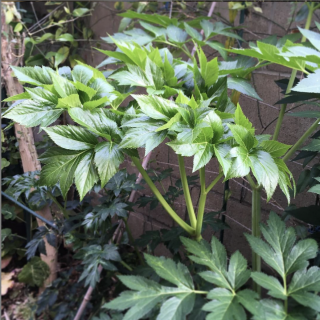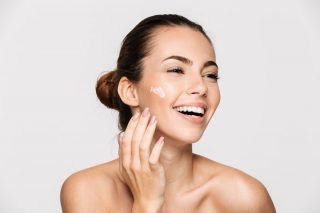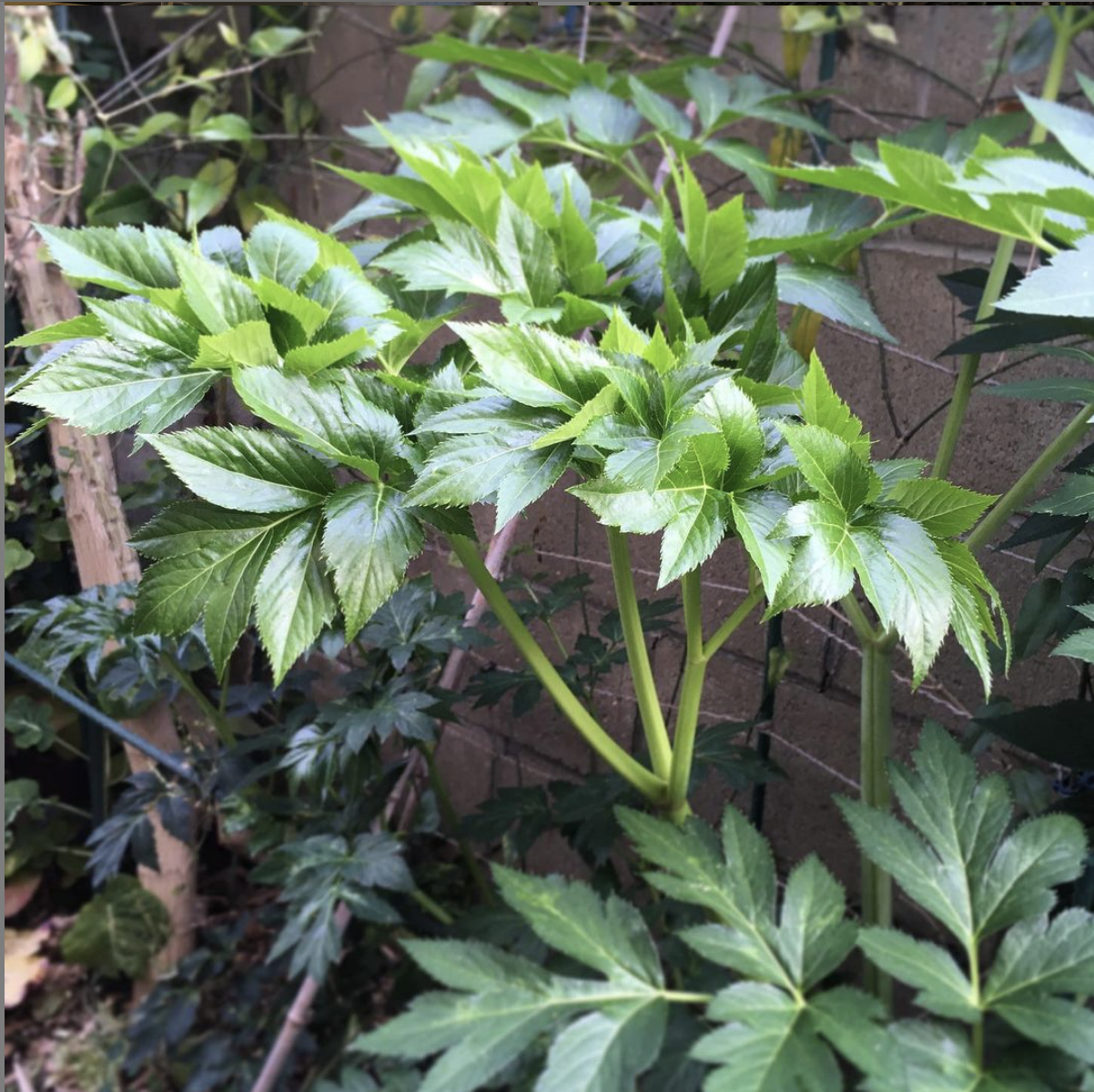Whether it’s beauty or medicine, most of us tend to prefer natural ingredients. It seems that the Western world might finally be realizing what the Japanese have known all along…Ashitaba. It’s a herb that has been a staple in Japanese medicine for centuries and now, it seems that it has caught the eye of beauty brands. It’s already known as a superfood, but is Ashitaba about to become a super ingredient in the world of anti-aging beauty?
What is Ashitaba?
 It’s essentially a large herb that is found primarily in central Japan. The other name for the plant is Angelica keiskei, which means “tomorrow’s leaf”.
It’s essentially a large herb that is found primarily in central Japan. The other name for the plant is Angelica keiskei, which means “tomorrow’s leaf”.
The plant itself is perennial and boasts broad green leaves and white flowers. The plant also contains yellow sap, which is edible. One of the most amazing things about this particular plant is that pretty much all of it can be used. The root, stem, and leaf are all used in herbal medicine.
Quite bizarrely, it’s actually part of the carrot family. It’s a plant that has long been held in very high regard by the Japanese themselves and is a key ingredient in a lot of Japanese botanical medicine.
More recently, it has been perceived as somewhat of a superfood. In Japan, however, it has long been a staple food and is used as a vegetable. Sometimes, it is made into a tea and this is what often makes its way into health drinks.
How does it work?
So it’s long been popular in Japan, but what is it used for? Primarily, Ashitaba is used for its anti-aging properties. There is also a belief that consuming it regularly could potentially improve longevity and lead to a wide range of benefits. It is worth mentioning here, however, that these benefits have not been proven. But, there is a lot of interest in the plant, and its popularity in the Western world is definitely on the rise. What is of interest is a recent study that found that a flavonoid (4,4’-dimethoxychalcone) that is prevalent in Ashitaba is associated with anti-aging properties.
Unfortunately, there really hasn’t been enough research conducted on the plant as yet to prove its benefits. Mostly though, it is used to treat persistent heartburn, stomach ulcers, high blood pressure, and even constipation. Some of the chemicals in the plant seem to act as antioxidants, which may also be a reason behind its healing properties. Most research, however, is limited and has only been conducted on animals or in test tubes.
What is it used for?
Given a definite lack of scientific proof, there is insufficient evidence to say for sure that Ashitaba does anything at all. However, mostly, its uses include
- Cancer

Photo by Sora Shimazaki from Pexels
- Constipation
- Gout
- Hayfever
- High cholesterol
- Heartburn
- Stomach ulcers
Another use is in the treatment of liver disease in people who drink alcohol. However, early research has shown that taking Ashitaba extract twice daily for 12 weeks improves neither fatigue nor liver function. It isn’t recommended that women that are pregnant or breastfeeding take Ashitaba as there currently isn’t enough research to show whether it could potentially cause harm.
Now it seems to be headed for the beauty industry

Dean Drobot/Shutterstock
Given its potential anti-aging benefits, it is perhaps not too surprising then that Ashitaba seems to be popping up more and more in the beauty industry.
Japanese-inspired French brand Bijin has been one of the first to promote the use of Ashitaba as a skincare ingredient. Currently, Bijin is using it in its “Concentré Jeunesse Visage” from its range “Secret d’Okinawa”. The brand says that the addition of this ingredient aids in deeply nourishing the skin whilst also fighting the signs of aging. This, Bijin says, is due to its ability to naturally reduce the cellular decline in the skin.
The takeaway
It’s already a superfood and despite a lack of scientific evidence to prove its worth, Ashitaba seems to be going from strength to strength when it comes to bursting onto the Western health scene. It’s likely that we’ll be seeing a lot more of this Japanese wonder plant in the near future, and it might even make its way into your skincare.
Whether you choose to experiment with it in the interim is really up to you. However, it is best, as with all unknowns, to start small and err on the side of caution. Especially if you are pregnant or breastfeeding.
References
https://www.premiumbeautynews.com/en/is-ashitaba-beauty-industry-s,18956
https://www.webmd.com/vitamins/ai/ingredientmono-1134/ashitaba
https://www.medicalnewstoday.com/articles/324508#A-plant-substance-with-protective-effects
https://sg.style.yahoo.com/ashitaba-incoming-meet-beauty-industrys-135123140.html






![women [longevity live]](https://longevitylive.com/wp-content/uploads/2020/01/photo-of-women-walking-down-the-street-1116984-100x100.jpg)










